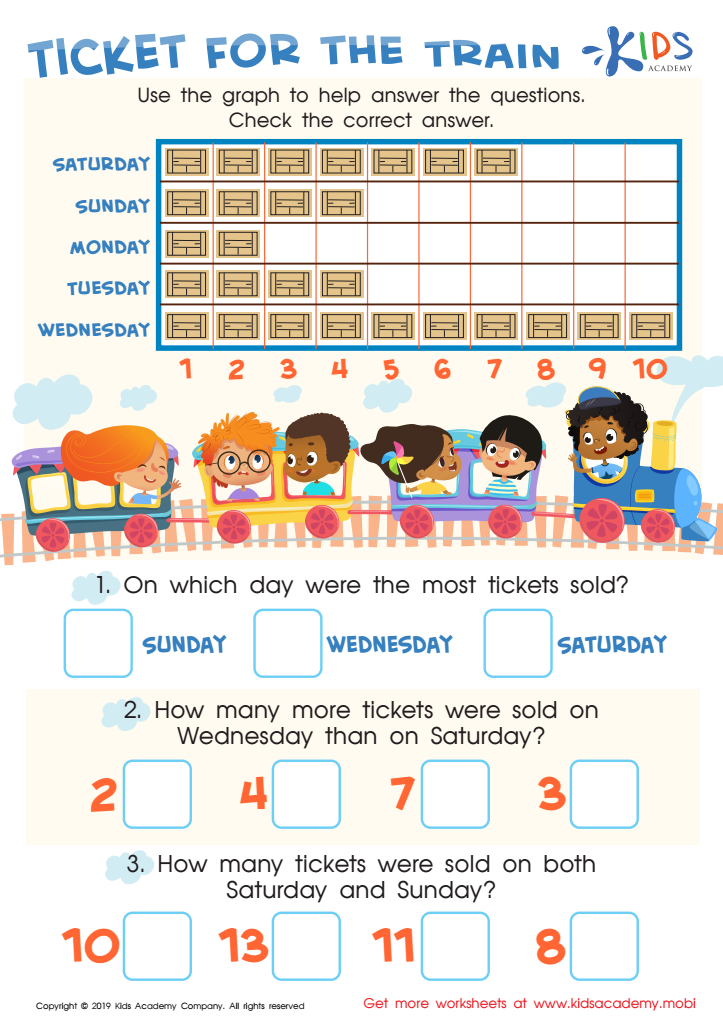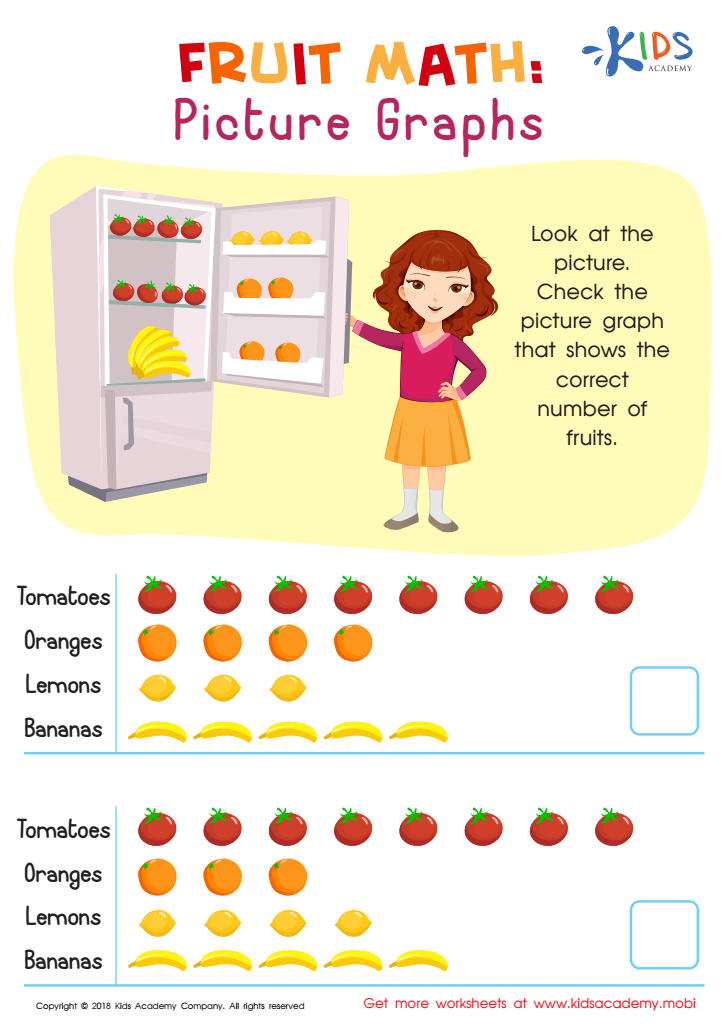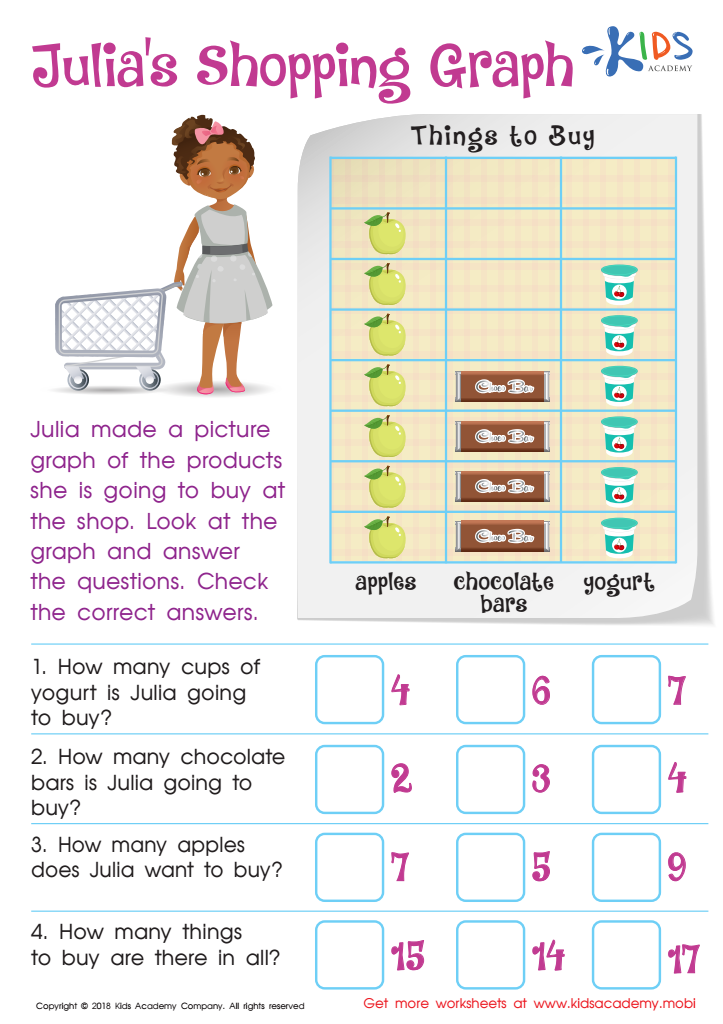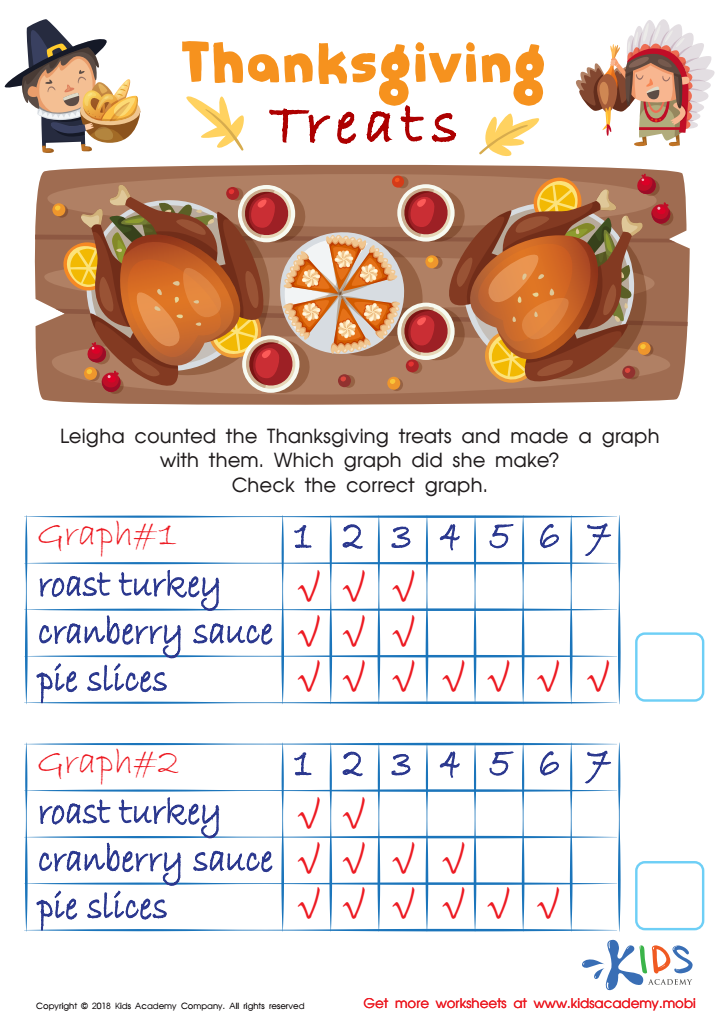Easy Graphs Worksheets for Ages 4-7
4 filtered results
-
From - To
Welcome to our collection of Easy Graphs Worksheets designed specifically for children aged 4-7! Enhance your child's understanding of basic graphing concepts with fun and engaging activities that promote learning through play. Our worksheets cover a variety of topics, including interpreting data, creating simple bar graphs, and identifying patterns, making math enjoyable and accessible. With colorful illustrations and clear instructions, these resources are perfect for parents and educators alike. Encourage your child's analytical skills and build confidence in their math abilities. Explore our interactive and printable worksheets today to help your little ones embark on their graphing adventure!


Ticket for the Train Worksheet


Fruit Math: Picture Graphs Worksheet


Julia's Shopping Graph Worksheet


Graphs: Thanksgiving Treats Worksheet
Easy Graphs for Ages 4-7 is an educational tool that helps young learners develop foundational skills in understanding and interpreting data through simple graphing concepts. Parents and teachers should care about this resource because it fosters critical thinking and analytical skills essential for early development.
At this age, children are naturally curious and eager to explore their world. Easy Graphs introduces children to fundamental math concepts such as sorting, categorizing, and comparing information in a visual format. These skills are vital not only for future math success but also for enhancing comprehension across various subjects.
Moreover, engaging with Easy Graphs promotes communication skills as children learn to describe and articulate their observations about the data presented. This activity cultivates a sense of inquiry and encourages collaboration when discussing findings with peers or family members.
Incorporating Easy Graphs into learning environments also aligns with contemporary educational standards, emphasizing hands-on experiences. It nurtures a love for learning by making data fun and accessible, instilling a positive attitude towards mathematics early on. Overall, Easy Graphs offers a pathway for holistic development, preparing young minds for the complex analytical tasks they will face in future education and daily life.
 Assign to My Students
Assign to My Students














